Address
304 North Cardinal
St. Dorchester Center, MA 02124
Work Hours
Monday to Friday: 7AM - 7PM
Weekend: 10AM - 5PM
Address
304 North Cardinal
St. Dorchester Center, MA 02124
Work Hours
Monday to Friday: 7AM - 7PM
Weekend: 10AM - 5PM
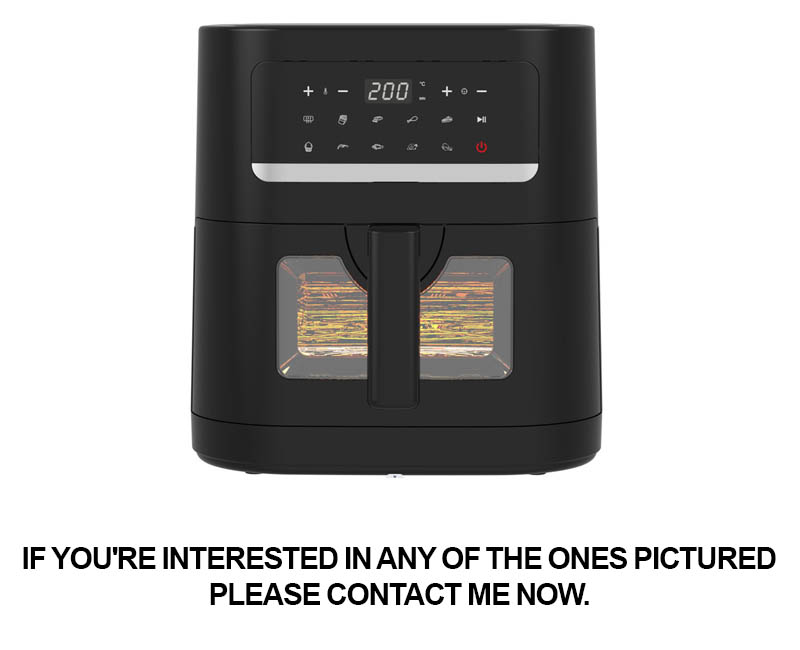
In a world where the European Union stands as a beacon for quality and compliance, navigating the complexities of market entry can be daunting, especially for brands looking to expand their reach. The UKCA certification, a pivotal step for manufacturers aiming to sell their products in the EU, offers a path illuminated by turnkey services designed to streamline the process. Let’s delve into how these services can make a significant difference for exporters.
The European Union (EU) market is renowned for its stringent regulatory environment, and recent changes have made it even more challenging for manufacturers to navigate. Understanding the new regulatory landscape is essential for any brand looking to expand into this lucrative market. Here’s a breakdown of what you need to know:
The EU’s regulatory framework for consumer goods, including kitchen appliances, is designed to ensure safety, health, and environmental protection for consumers. With the introduction of the New Legislative Framework (NLF) and the General Product Safety Directive (GPSD), the requirements for market entry have become more complex.
One of the most significant changes is the introduction of the UKCA (United Kingdom Conformity Assessment) mark, which replaced the CE marking for products sold in the UK after Brexit. However, the UKCA mark is also now recognized in the EU for certain product categories, including kitchen appliances. This means that while the CE mark remains valid for the EU market, manufacturers must now comply with both UK and EU regulations.
To understand the new regulatory landscape, it’s important to grasp the following key points:
Harmonized Standards: The EU has a comprehensive set of harmonized standards that cover kitchen appliances. These standards are mandatory for products intended for sale within the EU. Manufacturers must ensure that their products meet these standards to obtain the CE mark.
Technical Documentation: Alongside compliance with harmonized standards, manufacturers must compile a comprehensive technical documentation package. This includes design calculations, test reports, and safety assessments. The technical documentation is crucial for demonstrating conformity with EU regulations.
Product Liability: The EU places a strong emphasis on product liability. Manufacturers are responsible for ensuring that their products are safe and comply with all relevant regulations. In the event of a recall or safety incident, the burden of proof falls on the manufacturer.
Market Surveillance: The EU has a robust system for market surveillance to ensure that products comply with regulations once they are on the market. National market surveillance authorities can conduct checks and can impose sanctions if non-compliance is found.
Conformity Assessment Procedures: The EU recognizes different types of conformity assessment procedures, depending on the risk level of the product. For kitchen appliances, these procedures can range from self-declaration to full-quality assurance checks.
Notified Bodies: Manufacturers often rely on notified bodies to carry out conformity assessment procedures. These bodies are authorized by the EU to issue conformity declarations and CE marking. The choice of notified body can impact the efficiency and cost of the certification process.
Transition Periods: The EU has provided transition periods for certain regulations to allow manufacturers time to adapt. However, these periods are not indefinite, and it’s crucial for manufacturers to stay informed about the deadlines and requirements.
Regulatory Updates: The EU’s regulatory landscape is dynamic, with updates and amendments being introduced regularly. Staying informed about these changes is vital to ensure ongoing compliance.
For manufacturers, understanding the new regulatory landscape means not only meeting the current requirements but also being prepared for future changes. This involves:
In conclusion, the EU market’s new regulatory landscape for kitchen appliances is a complex web of requirements and procedures. By understanding these complexities and taking proactive steps to ensure compliance, manufacturers can successfully navigate the market and gain a competitive edge.

UKCA certification, short for United Kingdom Conformity Assessment, is a vital process for manufacturers looking to export kitchen appliances to the European Union (EU) post-Brexit. This certification serves as a testament to the compliance of products with the EU’s stringent safety and quality standards. Let’s delve into what UKCA certification entails and why it’s indispensable for exporters.
The UKCA mark is a new certification symbol that replaced the CE mark for products being sold in the UK and the EU. While the CE mark was recognized across the European Economic Area (EEA), the UKCA mark is specifically for the UK and the EU market. This distinction is crucial because it signifies that a product has undergone the necessary assessments to meet the regulatory requirements of both regions.
For exporters, the UKCA certification is not just a regulatory requirement; it’s a gateway to a vast and lucrative market. The EU is the largest single market in the world, with a population of over 450 million consumers. This market offers immense opportunities for growth, but it also demands a high level of product compliance. Here are several key reasons why UKCA certification is crucial for exporters:
Ensuring Compliance with EU Regulations: The EU has some of the most rigorous safety standards in the world, particularly for kitchen appliances. UKCA certification ensures that your products meet these standards, including electrical safety, energy efficiency, and environmental protection.
Building Consumer Trust: In the EU, consumers are accustomed to the CE mark as a symbol of quality and safety. By obtaining the UKCA certification, your brand can establish trust and credibility with European consumers, which is essential for long-term success in the market.
Avoiding Legal and Financial Risks: Failure to comply with EU regulations can lead to severe legal consequences, including fines and the seizure of non-compliant products. By obtaining UKCA certification, you mitigate these risks and protect your business from potential legal battles.
Facilitating Market Access: The UKCA mark is recognized by the EU as a valid conformity assessment procedure. This means that once you have the UKCA certification, you can freely sell your products in the EU without the need for additional certifications, simplifying the export process.
Adapting to Post-Brexit Reality: With the UK’s departure from the EU, the regulatory landscape has changed. UKCA certification is the new norm for products destined for the UK and the EU, making it a necessity for businesses that wish to continue exporting to these markets.
The process of obtaining UKCA certification involves several steps, including:
Identifying Relevant Regulations: Each type of kitchen appliance falls under specific EU regulations. It’s essential to identify which regulations apply to your product to ensure full compliance.
Conducting Technical Assessments: This involves testing your product to ensure it meets the required safety and performance standards. These assessments can be carried out by authorized bodies recognized by the UK government.
Preparing Technical Documentation: You’ll need to compile comprehensive technical documentation that proves your product’s compliance with the relevant regulations. This includes design drawings, material specifications, and test reports.
Applying for the UKCA Mark: Once you’ve completed the necessary assessments and prepared the required documentation, you can apply for the UKCA mark. This involves submitting your application to the appropriate authority, which will review it and issue the certification if your product meets the standards.
For exporters, the UKCA certification process can be complex and time-consuming. This is where turnkey certification services come into play. These services offer a comprehensive solution, taking care of all the necessary steps from start to finish. They can help navigate the regulatory landscape, conduct technical assessments, and prepare the required documentation, ensuring a smooth and efficient certification process.
In conclusion, UKCA certification is not just a regulatory requirement; it’s a strategic move for exporters looking to capitalize on the EU market. By ensuring compliance with EU regulations, building consumer trust, and facilitating market access, UKCA certification can be a game-changer for businesses aiming to thrive in the competitive European market.
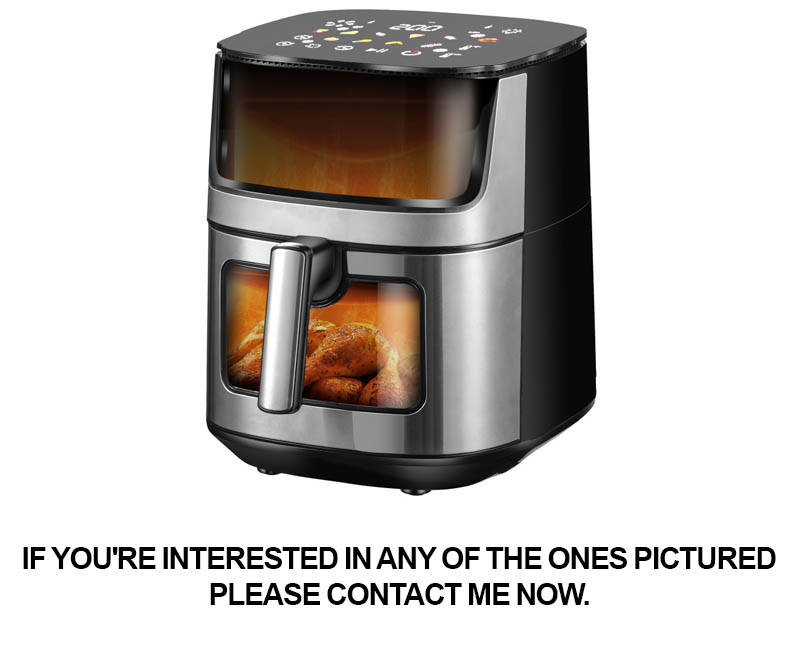
Navigating the complexities of the European Union (EU) market can be daunting, especially for exporters. That’s where UKCA certification services come into play, offering a comprehensive solution that can significantly streamline the process. Here are the key benefits of opting for turnkey UKCA certification services:
1. Expert Guidance Through EU RegulationsTurnkey UKCA certification services provide in-depth knowledge of the EU’s intricate regulatory framework. These services ensure that your products are not only compliant with the necessary standards but also with the nuances of EU directives and regulations. This expertise can save you from the time-consuming task of decoding complex legal requirements on your own.
2. Time and Cost EfficiencyThe turnkey approach to UKCA certification means that all aspects of the certification process are handled by a single provider. This consolidation of services can significantly reduce the time it takes to obtain certification. Moreover, by eliminating the need to coordinate with multiple entities, you can also save on administrative costs.
3. Comprehensive Support for ComplianceCompliance with EU regulations is not just about meeting the technical standards; it also involves documentation, labeling, and possibly adapting your products to meet specific EU requirements. Turnkey services offer comprehensive support, ensuring that every detail is taken care of, from technical specifications to compliance with EU safety and health standards.
4. Enhanced Market AccessOnce your products have UKCA certification, they gain access to the EU market with ease. This certification is recognized across all 27 member states, which means that once you have it, you can sell your products without the need for additional certifications in each country. This streamlined market access can open up new opportunities and expand your customer base.
5. Risk MitigationWithout proper certification, your products could be at risk of being denied entry into the EU market, leading to costly delays and potential damage to your brand’s reputation. Turnkey UKCA certification services mitigate these risks by ensuring that your products meet all necessary standards before they reach the EU market.
6. Continuous Monitoring and UpdatesRegulations in the EU are subject to change, and staying abreast of these changes is crucial for maintaining compliance. Turnkey services often include ongoing monitoring and updates, ensuring that your products remain certified even as regulations evolve. This proactive approach helps you avoid any non-compliance issues down the line.
7. Customized Solutions for Diverse Product LinesEvery manufacturer has unique products and requirements. Turnkey services offer customized solutions that cater to the specific needs of your product lines. Whether you’re dealing with small appliances, kitchen hoods, or integrated cooking systems, these services can tailor their approach to ensure your products meet all relevant EU standards.
8. Strengthened Brand ReputationHaving UKCA certification can serve as a powerful marketing tool. It demonstrates to consumers that your products have undergone rigorous testing and comply with strict EU safety standards. This can enhance your brand reputation and build trust with customers in the EU market.
9. Facilitated Export ProcessesThe turnkey approach simplifies the export process by handling all the necessary paperwork and documentation. This can save you from the headaches of dealing with customs and regulatory authorities, ensuring a smooth transition from manufacturing to market entry.
10. Long-Term Strategic PartnershipBy choosing a turnkey UKCA certification service, you’re not just getting a one-time service; you’re establishing a long-term strategic partnership. This relationship can provide ongoing support, not just for certification but also for any future product development or regulatory changes that may affect your business in the EU market.
In summary, turnkey UKCA certification services offer a comprehensive, efficient, and risk-free path to entering the EU market. By leveraging the expertise and resources of these services, exporters can focus on what they do best—producing high-quality products—while ensuring compliance with the EU’s stringent regulatory requirements.
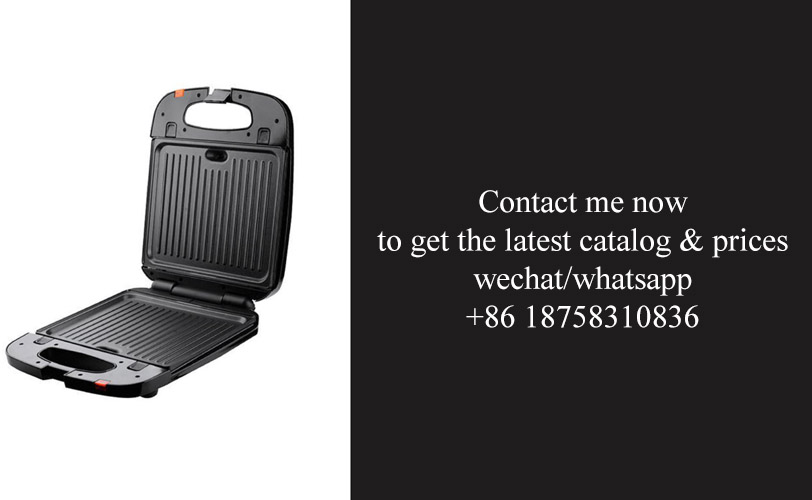
Understanding the EU’s regulations can be like trying to navigate a labyrinth, filled with numerous twists and turns. Here’s a deep dive into the complexities that await manufacturers looking to enter the EU market:
Compliance with a Patchwork of Laws: The EU is made up of 27 member states, each with its own set of regulations and standards. When it comes to kitchen appliances, these can vary significantly. For example, the Low Voltage Directive (LVD) applies to electrical equipment, while the Radio Equipment Directive (RED) covers devices that emit radio signals. Navigating this patchwork requires a thorough understanding of each directive and its implications for your product.
Safety Standards and Certifications: Ensuring that products meet the stringent safety standards is paramount. This includes certifications like CE marking, which demonstrates conformity with EU safety, health, and environmental protection requirements. However, the process is not as straightforward as simply adding a CE mark to your product. It involves rigorous testing, technical documentation, and compliance with a multitude of directives and regulations.
Technical Documentation and Testing: The EU requires comprehensive technical documentation for all products. This includes detailed technical drawings, design calculations, and safety assessments. The products must undergo testing to prove compliance with specific EU directives, such as those covering electrical safety, energy efficiency, and electromagnetic compatibility. The complexity arises from the need to ensure that all these tests are conducted by approved bodies and that the documentation is thorough and accurate.
Energy Efficiency and Environmental Regulations: The EU is known for its commitment to environmental sustainability, and this extends to. Regulations like the Energy-related Products Directive (ErP) dictate energy efficiency levels for appliances, and non-compliance can result in restrictions on sales or even complete bans. Keeping up with the latest energy efficiency labels and standards is essential, as they are subject to frequent updates.
Harmonized Standards and Technical Specifications: The EU has developed harmonized standards for many product categories, including。 These are standards that member states must adopt, which helps ensure a level playing field. However, there are still some products that do not have harmonized standards, requiring manufacturers to refer to other EU directives or national standards, which can be more challenging to navigate.
Labeling and Information Requirements: Proper labeling is crucial for EU consumers. It must include information such as the manufacturer’s name and address, product type, and any warnings or instructions. The complexity lies in ensuring that all required information is clearly and accurately presented, in the appropriate languages, and meets the EU’s labeling regulations.
Product Withdrawal and Recalls: The EU has strict procedures for the withdrawal of non-compliant products from the market. This can be triggered by a recall, and the process involves notifying the relevant authorities, conducting investigations, and taking corrective actions. For manufacturers, this means being vigilant about product quality and compliance to avoid costly and damaging withdrawals.
Keeping Up with Changes: The EU’s regulatory landscape is not static. New directives, amendments, and updates are introduced regularly. This means that manufacturers must stay informed and adapt their compliance strategies accordingly. Failure to keep up can lead to legal issues, financial penalties, and reputational damage.
The Role of Professional Consultants: Given the complexities of EU regulations, many manufacturers opt to work with professional consultants who specialize in regulatory compliance. These consultants can provide guidance, ensure that all requirements are met, and help avoid the pitfalls of non-compliance.
The Impact of Brexit: For manufacturers in the UK, the complexities are compounded by the recent exit from the EU. UKCA (United Kingdom Conformity Assessment) certification is now required for products destined for the UK market, and the UK’s regulatory framework may diverge from that of the EU in the future. This means that even more vigilance is needed to ensure compliance with both UK and EU requirements.
Navigating the complexities of EU regulations is a multifaceted challenge that requires dedication, expertise, and a deep understanding of the legal landscape. For manufacturers looking to enter or expand their presence in the EU market, it’s a journey that requires careful planning and ongoing management.

Understanding the intricacies of the Turnkey UKCA Certification process is essential for manufacturers looking to export their kitchen appliances to the EU market. Here’s a breakdown of the key steps involved:
Product Assessment: The journey begins with a thorough assessment of your kitchen appliances to determine their compliance with the UKCA (United Kingdom Conformity Assessment) marking requirements. This involves checking if your products meet the necessary technical standards, such as those set by the European Union (EU) and the UK.
Technical Documentation: Gathering and preparing all the necessary technical documentation is a critical step. This includes product design files, technical drawings, material specifications, and safety test reports. Ensuring that all documentation is accurate and up-to-date is vital for a smooth certification process.
Notified Body Selection: Choosing the right Notified Body (NB) is crucial. A Notified Body is an organization recognized by the EU to carry out conformity assessment procedures. They will inspect your products and issue the UKCA marking if they meet the required standards.
Testing and Inspection: The Notified Body will conduct a series of tests and inspections on your kitchen appliances. These may include electrical safety tests, energy efficiency assessments, and material testing to ensure they meet the EU’s stringent requirements. The specific tests will depend on the type of appliance and its intended use.
Preparation of Technical File: If the initial assessment and testing are successful, the Notified Body will help you prepare a comprehensive technical file. This file contains all the evidence of compliance with the relevant EU and UK regulations. It’s a crucial document that will be reviewed by the authorities if your products are selected for random checks.
UKCA Mark Application: Once your technical file is complete and approved, you can apply for the UKCA mark. This mark is affixed to your products to indicate that they have undergone the necessary conformity assessment procedures and meet the required standards.
Declaration of Conformity: Alongside the UKCA mark, you will need to provide a Declaration of Conformity (DoC). This document legally states that your kitchen appliances comply with all applicable EU regulations. It must be signed by a person authorized to do so by your company.
Monitoring and Continued Compliance: The UKCA Certification is not a one-time event. Your products must continue to comply with the relevant standards throughout their lifecycle. Regular monitoring and, if necessary, additional testing may be required to maintain compliance.
Training and Support: Throughout the process, it’s beneficial to have access to training and support. Many turnkey certification services offer guidance on how to navigate the process, understand the regulations, and ensure that your products meet the necessary standards.
Market Access: Finally, once the UKCA mark is in place and your Declaration of Conformity is issued, you can confidently enter the EU market. The certification process ensures that your products meet the necessary safety and quality standards, which is essential for building trust with European consumers.
Navigating the Turnkey UKCA Certification process requires attention to detail, a thorough understanding of the regulations, and often, the assistance of experts. By following these steps and ensuring that all requirements are met, manufacturers can successfully export their kitchen appliances to the EU, opening up a new market of consumers.

In the world of kitchen appliance exports, achieving turnkey certification is a significant milestone for brands aiming to tap into the lucrative EU market. Here are a few success stories that showcase how different brands navigated the process and reaped the benefits of turnkey certification.
Brand A: Streamlining Compliance with Turnkey UKCA Certification
Brand A, a mid-sized manufacturer of kitchen appliances, found itself facing the challenge of complying with the new UKCA (United Kingdom Conformity Assessment) marking requirements for EU market entry. By partnering with a turnkey certification service, the company was able to navigate the complex regulatory landscape efficiently. The service ensured that all necessary tests and assessments were conducted, and the UKCA mark was affixed to their products, allowing them to confidently enter the EU market without delays.
Brand B: Expanding into New Markets with Turnkey Certification
Brand B, a well-established kitchen appliance brand, had been eyeing the EU market for years. However, the intricate web of EU regulations and certification requirements seemed insurmountable. With the help of a turnkey certification service, the brand was able to streamline the process. The service not only handled the technical aspects but also provided valuable insights into the local market dynamics, enabling Brand B to tailor its product offerings to meet EU consumer preferences.
Brand C: Mitigating Risks with Turnkey Certification
Brand C, a newer entrant in the kitchen appliance industry, knew that entering the EU market was a significant step that came with its own set of risks. By opting for turnkey certification, the brand was able to mitigate these risks significantly. The comprehensive support from the certification service ensured that all products met the stringent safety and quality standards required by EU regulations, thus avoiding potential legal issues and customer dissatisfaction.
Brand D: Enhancing Brand Reputation with Turnkey Certification
Brand D had a strong reputation for quality and innovation but faced the challenge of expanding its product range into the EU market. The brand chose turnkey certification to ensure that its new line of appliances met the necessary standards. The turnkey service not only helped in obtaining the UKCA mark but also provided guidance on compliance with the EU’s General Product Safety Directive. This certification not only gave the brand a competitive edge but also reinforced its commitment to quality and safety, enhancing its reputation among EU consumers.
Brand E: Saving Time and Resources with Turnkey Certification
For Brand E, time and resources were at a premium. The company was in a rush to launch its latest kitchen appliance in the EU market. The turnkey certification service was instrumental in expediting the process. By handling all the technicalities, including product testing, documentation, and mark affixation, the service allowed Brand E to focus on other critical aspects of its business, such as marketing and distribution.
Brand F: Adapting to EU Standards with Turnkey Certification
Brand F, known for its unique design aesthetic, faced the task of adapting its kitchen appliances to meet EU safety and performance standards. The turnkey certification service provided the necessary expertise to ensure that the brand’s products were not only compliant but also met the aesthetic expectations of EU consumers. This adaptation was crucial for Brand F to maintain its brand identity while expanding into a new market.
These case studies highlight the value of turnkey certification services for kitchen appliance brands looking to enter the EU market. By partnering with experts who understand both the technical and regulatory aspects of certification, these brands were able to overcome challenges, save time, and ultimately achieve success in the competitive EU landscape.
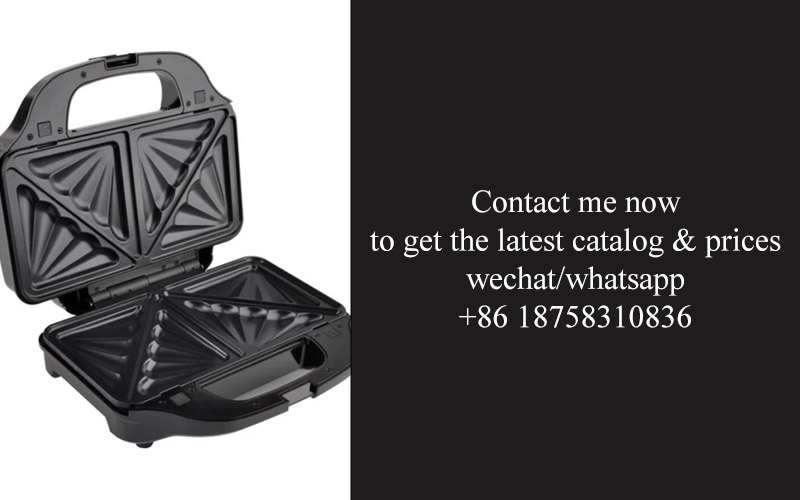
In the ever-evolving landscape of the European Union (EU) market, the future of kitchen appliances () holds both opportunities and challenges. Understanding what lies ahead and how to prepare is crucial for manufacturers looking to thrive in this competitive environment.
The EU’s stringent regulations are not just a hurdle but also a gateway to a vast consumer base with high standards. As the market continues to demand innovative and sustainable solutions, companies must adapt to meet these evolving needs. Here are some key aspects to consider as you look toward the future of in the EU:
Innovation at the CoreInnovation will be the cornerstone of success in the EU market. Consumers are increasingly seeking smart, energy-efficient, and eco-friendly appliances. Brands that can integrate cutting-edge technology and sustainable materials into their products will find a competitive edge.
Regulatory ComplianceThe EU’s regulatory environment is complex, with various directives and standards governing product safety, energy efficiency, and environmental impact. Staying compliant with these regulations is not just a legal requirement but a trust-building factor with consumers.
Sustainability and Eco-consciousnessAs climate change becomes a more pressing issue, the EU consumer is more environmentally conscious than ever. Appliances that are designed with sustainability in mind, such as those with low energy consumption and recyclable components, are likely to resonate with this market.
Digital TransformationThe integration of digital technology into kitchen appliances is not just a trend; it’s a necessity. Smart appliances that can be controlled via smartphones or voice assistants are becoming the norm. Brands that can offer seamless connectivity and user-friendly interfaces will be well-positioned for the future.
Local PartnershipsBuilding strong relationships with local partners, including distributors and retailers, is essential. Understanding local market dynamics and consumer preferences can help tailor products to meet specific needs and increase market penetration.
Global Supply Chain ConsiderationsThe EU’s trade policies and the potential implications of Brexit have made supply chain management a critical concern. Companies must consider the impact of tariffs, customs regulations, and logistics when planning their market entry and expansion strategies.
Consumer Trust and SafetyIn the wake of recent product recalls and safety concerns, consumer trust in kitchen appliances has waned. Brands that prioritize safety certifications and demonstrate a commitment to quality will build a loyal customer base.
Adaptability and FlexibilityThe ability to adapt to changing market conditions is crucial. This means being agile in responding to regulatory changes, consumer trends, and technological advancements.
Long-term Strategic PlanningSuccess in the EU market requires long-term strategic planning. Companies need to invest in research and development, marketing, and distribution channels to establish a solid foundation for growth.
International CollaborationCollaborating with international partners can provide valuable insights into global market trends and consumer behavior. This can lead to the development of products that are not only compliant with EU standards but also resonate with a broader international audience.
Investment in BrandingA strong brand identity can differentiate a product in a crowded market. Investing in branding and marketing efforts that highlight the unique selling points of your products can help capture the attention of European consumers.
Diversification of Product RangeOffering a diverse range of products can cater to different consumer segments and needs. This could include everything from premium appliances for luxury homes to budget-friendly options for more cost-conscious consumers.
By focusing on these areas, manufacturers can prepare themselves for the future of in the EU. It’s a market that requires a combination of innovation, compliance, sustainability, and strategic planning to succeed. Those who are ready to meet these challenges will find the EU to be a rewarding and dynamic marketplace for their kitchen appliance products.
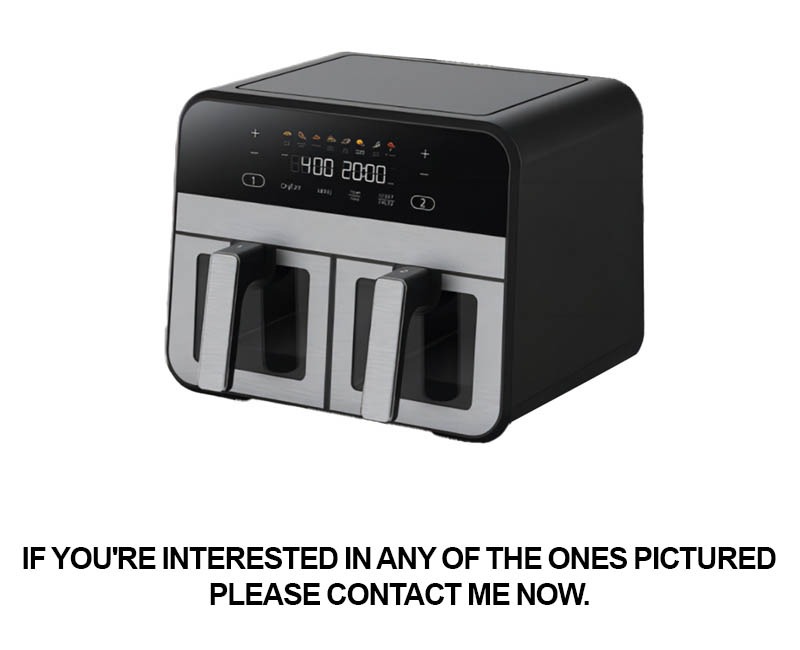
The future of kitchen appliances in the EU is a tapestry woven with innovation, compliance, and evolving consumer demands. As the market shifts, it’s crucial for manufacturers to stay ahead of the curve. Here’s what you can expect and how to prepare for the dynamic landscape of EU kitchen appliance market:
Technological Advancements: The integration of smart technology and AI in kitchen appliances is not just a trend but a necessity. Expect to see a surge in products that offer connectivity, energy efficiency, and personalized experiences. To prepare, invest in R&D to ensure your products are at the forefront of these technological breakthroughs.
Regulatory Compliance: The EU’s strict standards for safety and environmental impact are only expected to become more stringent. Staying compliant means not just meeting current regulations but being prepared for the changes that may come. Engage with regulatory bodies and stay informed about any new directives that might affect your product line.
Sustainability and Eco-Friendly Practices: The EU consumer is increasingly conscious of sustainability. Expect to see a push towards eco-friendly materials, energy-saving designs, and products that have a minimal environmental footprint. To prepare, consider adopting sustainable manufacturing processes and promoting your eco-friendly credentials.
Market Diversification: As the EU market continues to grow, so does the potential for market diversification. This means exploring different segments within the kitchen appliance category, such as professional-grade appliances for commercial kitchens or niche products for specific culinary preferences. To prepare, conduct market research to identify underserved segments and tailor your product offerings accordingly.
Consumer Trends: Understanding and adapting to consumer trends is essential. Expect to see a rise in demand for appliances that offer convenience, ease of use, and aesthetic appeal. To prepare, stay attuned to consumer behavior through social media, market research, and direct feedback from customers.
E-commerce Expansion: Online sales are becoming a significant part of the appliance market. The EU consumer is embracing online shopping, and it’s important to have a strong online presence. To prepare, invest in e-commerce platforms that cater to the EU market, ensuring seamless cross-border transactions and efficient delivery options.
Collaboration and Partnerships: The competitive landscape of the EU kitchen appliance market requires strategic partnerships. Look for opportunities to collaborate with local distributors, retailers, and service providers who can help you navigate the market effectively. To prepare, build a network of trusted partners who can offer local insights and support.
Global Competitiveness: As the EU market becomes more competitive, manufacturers must focus on global competitiveness. This involves optimizing supply chains, reducing costs without compromising quality, and ensuring products meet international standards. To prepare, analyze your competitive edge and find ways to enhance it.
Data Security and Privacy: With the increasing reliance on technology, data security and privacy become paramount. The EU has stringent regulations, such as the General Data Protection Regulation (GDPR), that protect consumer data. To prepare, ensure your business complies with these regulations and invest in robust data security measures.
Continuous Innovation: The only constant in the kitchen appliance industry is change. To prepare for the future, foster a culture of continuous innovation within your organization. Encourage creativity and invest in research and development to stay one step ahead of the competition.
In summary, the future of kitchen appliances in the EU is a landscape of opportunity and challenges. By focusing on technological advancements, regulatory compliance, sustainability, market diversification, and staying informed about consumer trends, manufacturers can prepare for a future where innovation meets market demand.